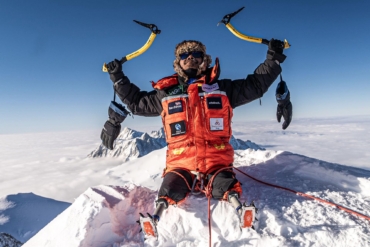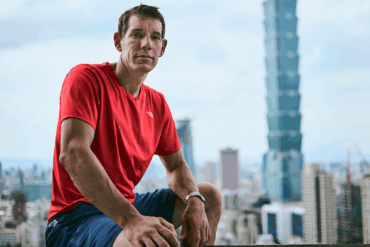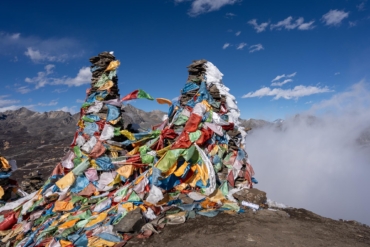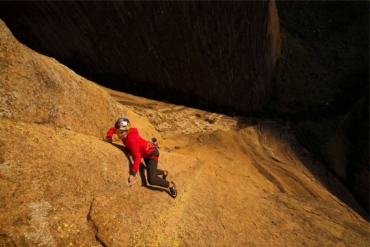Kai Lightner is a competitive sport climber from North Carolina providing opportunities and expanding DEI work in the outdoor industry.
The rise of racial tensions in the United States prompted our nation to go beyond having discussions. It’s time for actionable steps to address racial injustice. And the outdoor community isn’t exempt from these much-needed resolutions. As I’ve come to learn, many issues have been swept under the crash pad.
But things are changing. Kai Lightner is a multinational climbing champion with more accolades than I can count. In summer 2020, he founded the nonprofit Climbing4Change (C4C) to reframe what it means to be an outdoor enthusiast.
The organization obtained 501c3 status in July, and it’s ready to ramp up work providing opportunities for BIPOC and Diversity, Equity, and Inclusion (DEI) initiatives in the outdoors.
Being the ‘Other’ in the Climbing Community
I didn’t start climbing at age 6 in Fayetteville, North Carolina, like Kai. But I understood what it meant to participate in something that “Black people don’t do.”
When I first started climbing about a year ago, it was quite apparent that I’d be the only Black person at my local climbing gyms. Session after session, I’d see no one who looked like me. Come to think of it, no one came to mind when I thought of Black climbers in media coverage.
When you’re the only one of your kind in an area, you’re immediately the “other.” Since I started climbing here in Raleigh, N.C., the people that I happened to meet were supportive. Instead of focusing on me being the elephant in the room, I focused more on our shared love for climbing.
A Defining Moment
But the killing of George Floyd and protests that ensued helped clear the air of chalk I had trouble seeing through.
Sparks in racial tensions have not only made me cognizant of the many barriers BIPOC face inside my local gym, but I’ve also been aware of the many issues that have yet to be addressed when climbing outside.
For example, the issue of racists and sexist climbing route names has become a major topic of discussion among rock climbers in 2020. And while some progress is being made in renaming routes, there are still hundreds across the continent that are hurtful to BIPOC or LGBTQ climbers.
It’s About Feeling Safe
BIPOC don’t feel safe when traveling in and through “sundown towns,” dealing with route names riddled in hate speech, and the constant feeling that “you don’t belong outdoors.”
This is why Climbing4Change is important. C4C will provide opportunities and DEI initiatives for BIPOC inside climbing gyms and out in nature where all outdoor enthusiasts belong!
One of the best ways to dismantle racism and normalize diversity, equity, and inclusion in the outdoor space is by putting BIPOC at the forefront. What better way to inspire a young person of color to enter the outdoors than to see themselves as leaders in the space.
C4C helps BIPOC become industry leaders. It assists them to achieve advanced certifications like coaching, route-setting, mountain guiding, and more. It did this by working with two organizations to plan financial support for BIPOC individuals to receive financial assistance to obtain route-setting and AMGA certifications. C4C will offer additional support for obtaining leadership certifications, with information coming in the near future.
The group aims to increase diversity at all levels across the climbing industry, especially in leadership positions. By doing this, C4C not only amplifies marginalized voices. It also strengthens the representation needed to inspire the next generation of BIPOC individuals to participate in rock climbing and other adventure sports.
As industry leaders, BIPOC individuals have the ability to make positive changes to internal and external company operations. This is also how C4C can elevate BIPOC voices in a predominantly white sport. With that being said, C4C will make national and international climbing competitions more accessible for BIPOC individuals!
Making Outdoor Climbing Accessible
Kai Lightner commands respect as a competitive sport climber. And he will pass his love for climbing competitions down to the next generation of diverse climbers.
Outdoor climbing needs to also become more safe and accessible for BIPOC climbers. C4C will push forward biannual grants that cover outdoor adventure trips for BIPOC.
And I’m aware that some gyms across the nation have implemented BIPOC climbing sessions. For BIPOC climbers to have the opportunity to climb outside in groups is not only safe but makes for rad and memorable outdoor trips!
I’m hoping that more of a presence in the outdoor space by BIPOC folk will make first ascenders and non-BIPOC enthusiasts more mindful of the outdoors as a safe place for everyone.
Let’s Take It to the Next Level!
So we’ve mentioned what can be done for BIPOC individuals. But how can we make sure that DEI initiatives are implemented at the industry level? Don’t worry, C4C has got that covered too!
If you’re an organization that’s serious about supporting BIPOC communities in the outdoor space, C4C will facilitate gym and organization partnerships for outdoor businesses to offer affordable BIPOC membership programs. Kai’s nonprofit will also work with DEI organizations in the outdoor industry to fund initiatives and events that benefit their communities.
This would make industry business spaces and adventure programs more inclusive. This would make climbing gyms and outdoor institutions in Raleigh, Fayetteville, and hundreds of cities around the U.S. more understanding that DEI work cannot be done passively.
All of this goes to show that even a world-renowned climber who’s competed from continent to continent understands the extra weight that comes with being a Black climber in a white-dominated sport. To embrace diversity and encourage inclusivity — from athletes to industry leaders to filmmakers — shows that the outdoor community has much to gain from Climbing4Change.







